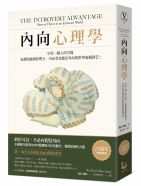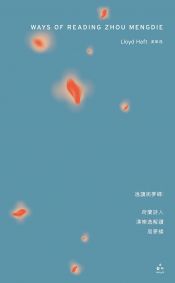PREFACE
This book brings together a number of prose pieces that I wrote at widely separated times between 2002 and the present year. It is a companion volume to Zhou Mengdie: 41 Poems, which comprises 41 poems by Zhou Mengdie (ZMD) in the original and in my English translations. In the preface to that book, I have outlined the development of my personal and professional interest in Zhou Mengdie, which goes back to 1971. The present book can be read independently, as all passages to be discussed are included in the original and in translation. This book is not intended as a general introduction to ZMD. It describes and gives examples of my personal reading strategies in the hope that readers may find them useful.
During the years when I taught courses on modern Chinese poetry at Leiden University in the Netherlands – from the 1970s until 2004 – I discussed Zhou Mengdie’s poetry with my students and translated some of his poems into both English and Dutch. I first published ten English translations in 2001 in the anthology Frontier Taiwan 二十世纪台灣詩選 edited by N.G.D. Malmqvist 馬悦然 and Michelle Yeh 奚密. The translations were well received. In the following couple of years, lecturing on ZMD at European universities – Prague and Bochum – I first started to systematize the reading strategies that worked well for me as approaches to ZMD’s dense and unusual poetry. In 2004, while on a research grant from the Center for Chinese Studies in Taipei, I further developed these ideas and made new translations. Together with my papers from Bochum and Prague, the results were published in 2006 in monograph form as Zhou Mengdie’s Poetry of Consciousness 周夢蝶與意識詩. That book, which I have slightly edited and re-titled Reading Zhou Mengdie 解讀周夢蝶, is one of two original publications that have now gone into the present collection.
The second is “‘Branchings of My Hands’: Translation as a Key to Parallel Meanings in Zhou Mengdie’s Poetry.” It began as a paper that I presented at an international conference on Zhou Mengdie held at National Taiwan University in March 2013. I slightly rewrote it and posted it on my blog in three instalments in September 2013. For inclusion in the present book I have re-titled it On Translating Zhou Mengdie.
The various pieces dating from 2006 and 2013 have two things in common. (1) They both stress that ZMD’s poetry is best approached by keeping various possible dimensions of meaning in mind at the same time. (2) They both focus strongly on the formal aspects of poetry. The first of these, the multi-level approach, means that rather than just pigeonholing ZMD as a ‘Buddhist’ poet, we should see what other keys besides Buddhism may fruitfully apply. In 2006, in discussing his thematics, I used a three-pronged approach (individual-collective-metaphysical). In 2013, focusing more on the language itself, I used the concept of a language ‘ambience’ which could be Public, Scriptural, or Existential.
As for the second point in common between “2006” and “2013” – the stress on the formal aspects of poems rather than on situating them within any historical or cultural context – this is a matter of my personal taste in literary analysis. My own interest in poetry developed during the 1970s and 1980s. In the beginning I was most drawn to Anglo-American Imagism (which in turn had been influenced by translations from classical Chinese poetry). Among methods of literary criticism, I have always most favored the so-called New Criticism, with its ‘close reading’ of individual texts, and Russian Formalism which similarly brings out meaning by examining identifiable linguistic features within the actual text. During the course of my career, newer and more complicated critical theories came out and were in vogue for a while, but I could not see that they were as useful for my purposes as the approaches I was already following.
I am not a Buddhist, but as a young graduate student fifty years ago, like many other European and American young people of my generation I was interested in Zen and read introductory books about it by writers like Alan Watts, Edward Conze, and D.T. Suzuki . My circle of friends in Holland included several believers in Theosophy, whose philosophy includes many Buddhist concepts. ‘Oriental’ ideas like karma and reincarnation were frequent topics of conversation. I am sure that present-day readers all over the world will be familiar enough with these concepts not to need special elucidation.
Of the pieces reprinted in this volume, undoubtedly “2013” is the most radical or experimental. It pursues ‘close reading’ to a level at which sometimes the individual words almost become independent. I believe this is legitimate as one possible approach among others. “2006” reads ZMD’s poems in frames of reference that may be initially unfamiliar to the average reader – formalist literary theory, Freudian dream psychology, and phenomenology. I have tried not to spend much space introducing these concepts separately, but rather to explain them while concretely demonstrating their applicability to ZMD’s poems. Parts of “2006” were written nearly twenty years ago, but I still stand by what I wrote at that time and have not made major revisions for this present edition.
All parts of this book were originally written in English and have been translated into Chinese for the Chinese edition. In Dorothea Tung (董恒秀), I was fortunate to find a translator who was adequate to this far-from-easy task. I have learned some Chinese vocabulary from studying the elegant solutions she has found!
I also wish to thank my partner Dr. Katie Su for her help with my ‘close reading’ of many a text, Deila Huang for advice on Chinese grammatical and linguistic terminology, and Professor Alvin Dahn for suggestions on philosophical nuances. Finally, this will be an appropriate place to thank my mother, who first introduced me to Freudian theory and to psychology in general, and my father, who gave me the idea that following my own road in life was the right thing to do.
Lloyd Haft
Neihu, Taipei
June 2021
































